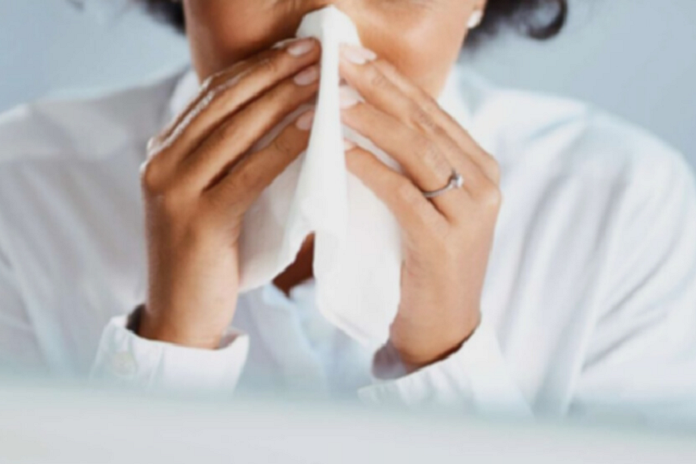Alternative medicine and procedures can supplement conventional treatments to provide natural symptom relief from a chronic sinus infection
A sinus infection, or sinusitis, involves the inflammation of the sinuses. The sinuses are the skull’s hollow areas by the cheekbones, lower forehead, between the eyes, and behind the nose.
These structures help humidify and filter the air we breathe. A sinus infection may last either short-term (acute) or long-term (chronic). Treatments for chronic sinus infections often involve both conventional and alternative methods.
Chronic sinusitis commonly develops in patients with allergies and asthma. Swelling can block fluid drainage and cause sinus congestion, leading to the worsening of the infection. The fluid build-up can lead to increased pain and pressure and a stuffy or runny nose.
Other symptoms include headache, bad breath, cough with mucus, fever, tooth pain, and reduced sense of smell and taste.
A physical examination is enough to diagnose a sinus infection, which is based on symptom duration. Acute sinusitis occurs for less than twelve weeks in adults, while chronic sinusitis occurs for more than twelve weeks. Sinus infections can be caused by viruses, bacteria, fungi, or allergies.
Viral sinusitis resolves itself within seven days, without treatment. Bacterial sinusitis is determined by tooth or facial pain and unpleasant nasal drainage. Allergy-caused sinusitis can be determined from a patient’s history, while fungal sinusitis rarely occurs.
If more confirmation of chronic sinusitis is required, then a nasal endoscopy can visually confirm tissue inflammation.
Air quality should be considered and assessed to help reduce sinus infections.
Indoor air quality can be regulated by High-quality particulate air (HEPA) filters and reduce unwanted indoor particles. Decreasing exposure to animal dander, dust mites, feather bedding, and carpeting may also help reduce further sinusitis events.
Masks can help reduce sinusitis risk while outdoors.
The following are conventional drug treatments for chronic sinusitis:
- Over-the-counter medications are available to provide pain and pressure relief, such as ibuprofen and acetaminophen.
- Antibiotics are often prescribed, but studies have shown that antibiotics have insignificant cure rates across the various antibiotic classes. Antibiotics do not have any effect on viral sinusitis.
- Oral and topical steroid medications are also prescribed. They must be used short-term for about two to four weeks to help reduce inflammation.
- Decongestants and antihistamines only provide relief from a stuffy or runny nose.
- If a fungal infection is involved, then antifungal medications are available for treatment.
If conventional drug treatments provide no relief, then surgery may be an option to remove tissue growth blocking the nasal passages.
Two reviews discussed alternative treatments for chronic sinusitis. The following table summarizes these discussions on potential alternative medicines and procedures.
Natural or alternative treatments for chronic sinusitis
Vitamin C (ascorbic acid)
- Vitamin C levels were significantly lower in patients with allergic and chronic sinusitis.
- Oral vitamin C appeared to reliably support the immune system against sinusitis.
- Intranasal vitamin C three times daily helped reduce nasal congestion and runny nose.
Bromelain
- Appeared to significantly relieve acute sinusitis symptoms in children faster than the standard treatment.
- Bromelain reduced nasal inflammation and thins the mucus.
- Oral doses of 500 to 1,000 mg per day, up to 2,000 mg per day, were studied for effectiveness.
N-acetylcysteine
- N-acetylcysteine, like bromelain, relieved sinusitis symptoms by thinning mucus.
- Oral doses of 600 to 1,500 mg per day in three divided doses were studied for effectiveness.
- At high doses, nausea, vomiting, and stomach disturbances were common side effects.
Quercetin
- Quercetin appeared to reduce and stabilize inflammation by suppressing the body’s inflammation-producing agents.
- Oral doses of 400 to 500 mg three times per day were studied for effectiveness.
Undecylenic acid
- Available as an oral or topical antifungal preparation with a possible benefit against allergic fungal sinusitis by suppressing fungal growth.
- Oral doses of 450 to 750 mg daily in three divided doses were studied for effectiveness.
Stinging Nettle (Urtica dioica)
- The mechanism behind this herbal treatment is unknown.
- An oral dose of 300 mg twice daily has been studied, but its effectiveness remains unclear.
Nasal irrigation
- Saline nasal irrigation relieves sinusitis by loosening mucus. Studies have shown this procedure to be well-tolerated, safe, and effective from infants to adults.
- A saline solution is prepared with sterile or distilled water in a teapot-like device, called a neti pot.
- Large-volume (150 mL) irrigations once- or twice-daily of hypertonic (2.12%) saline solution in a neti pot have shown more effectiveness over normal (0.9%) saline solutions. Hypertonic saline solutions provided significant symptom relief of nasal congestion, runny nose cough, and headache. Side effects from hypertonic solutions were rare but may lead to nasal irritation and a burning sensation.
Essential oils (Naso-sympatico)
- This procedure involves a cotton swab infused with diluted essential oils. The swab is massaged directly behind the nose where the oils will stimulate loosening and drainage of mucus.
- Studied essential oils include camphor, eucalyptus, lavender, pine, thyme, and clove.
Written by, Manuel Bangsil, PharmD, MBA, BCMAS
References:
- Sinusitis. HealthLink BC. https://www.healthlinkbc.ca/health-topics/hw67419. Accessed September 20, 2020.
- Casale M, Moffa A, Cassano M, et al. Saline nasal irrigations for chronic rhinosinusitis: From everyday practice to evidence-based medicine. An update. Int J Immunopathol Pharmacol. 2018;32:2058738418802676. doi:10.1177/2058738418802676
- Helms S, Miller A. Natural treatment of chronic rhinosinusitis. Altern Med Rev. 2006;11(3):196-207.
Image by Joseph Mucira from Pixabay



